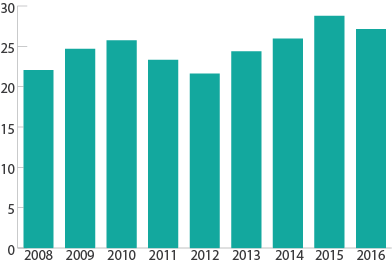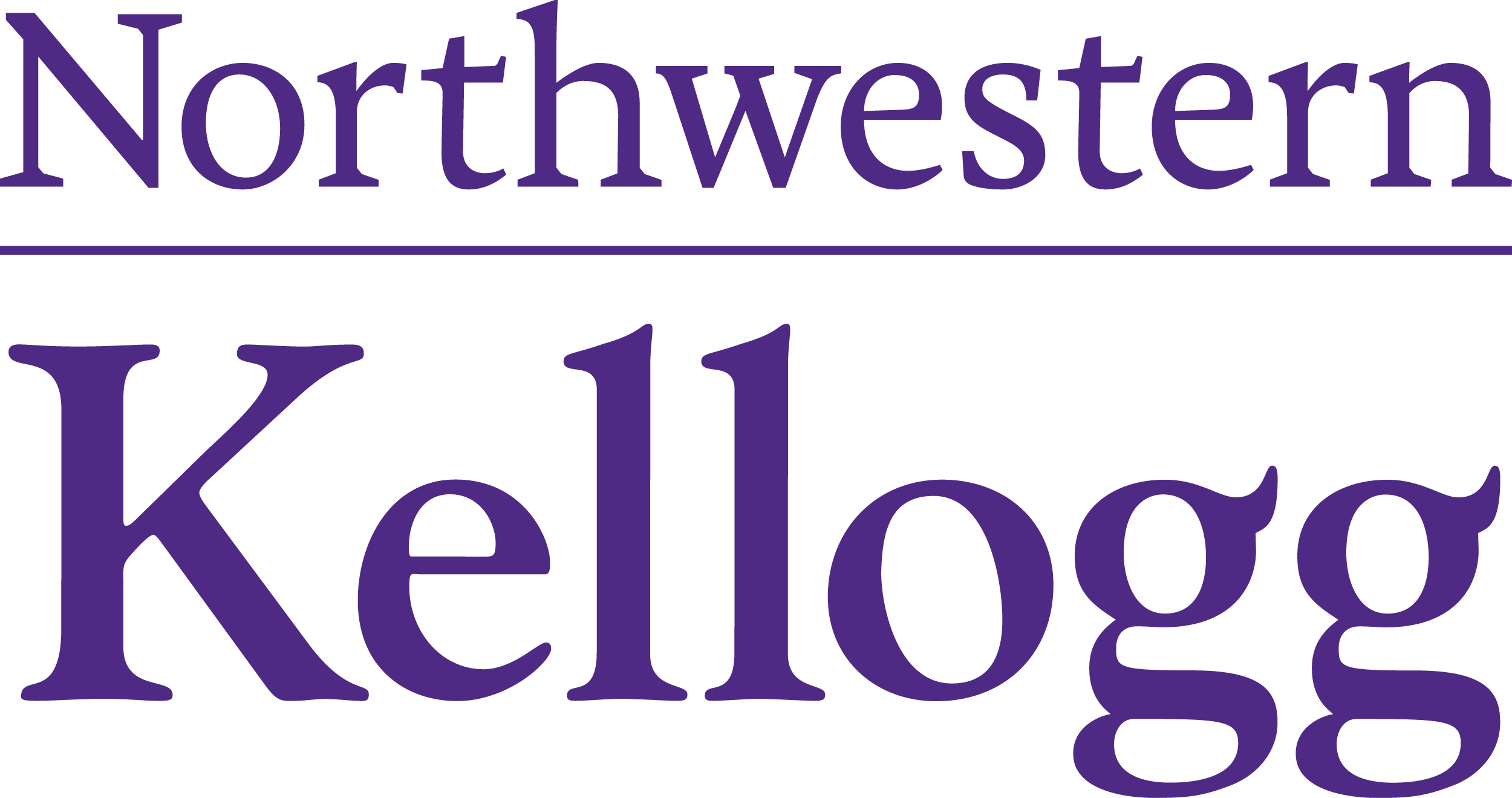|
- 27.13% trust in financial institutions, down from 28.76% in 2015.
Percentage of trust in financial institutions (annual results from surveys conducted in December)

Paola Sapienza and Luigi Zingales1
CHICAGO (January 23, 2017)—It’s been ten weeks since Donald Trump was elected President, yet the partisan divide continues to grow between Republicans and Democrats, while Independents are drifting toward the left. The chasm is especially evident when it comes to Mr. Trump’s deregulation plans and his cabinet appointments, according to the most recent Financial Trust Index survey conducted by the University of Chicago Booth School of Business and Northwestern University’s Kellogg School of Management.
The survey was conducted at the end of December 2016, polling 1,000 Americans.
Overall, 46% of respondents oppose Trump’s plan to eliminate Dodd-Frank, the financial reform passed in 2010 with the intent of preventing another financial crisis, with only 43% supporting it (11% did not express an opinion). The Republicans are strongly behind this idea (73% in favor v. 20% against), the Democrats strongly against (61% v. 31% in favor), with Independents more evenly split, but still opposing it 52% vs. 37%.
The survey revealed a similar divide regarding Trump’s decision to appoint several billionaires in key cabinet positions, with 65% of Republicans believing these appointments will make the government run more efficiently versus only 17% of Democrats and 27% of Independents.
Republicans are even more optimistic about the benefit these appointments will bring to the economy: 75% think they will make the economy run more efficiently, while only 24% of Democrats and 30% of Independents believe so.
However, even Republicans show doubt that these appointments will help the economy work “in the interest of all Americans,” with just 63% of Republicans backing that statement, and even fewer Democrats (26%) and Independents (30%) agreeing.
The survey revealed a majority consensus among Republicans, Democrats, and Independents as to whether “there’s a need to drain the Washington ‘corruption swamp,’” with 93% of Republicans agreeing with this statement, as well as 80% of Independents and 67% of Democrats.
The response to this question was directly correlated with the level of “anger” about the current economic situation reported by respondents. Among people who claim not to be angry at all, only 64% feel there is a need to drain the Washington swamp. Among those who declare themselves very angry, this percentage rises to 85%.
There is still is significant disagreement about whether Trump is going to impact corruption, with 82% of Republicans believing Trump will maintain his electoral promise to introduce ethics reforms aimed at reducing corruption in Washington, while only 20% of Democrats and 41% of Independents believe that he will successfully reduce corruption.
ABOUT THE SURVEY: On an annual basis, the Financial Trust Index captures the amount of trust that Americans have in the institutions in which they can invest their money. The study was conducted for the Financial Trust Index via telephone by SSRS, an independent research company. Interviews were conducted from December 27, 2016 to January 3, 2017 among financial decision makers. A total of 1,011 interviews were conducted, with a margin of error for total respondents of +/-3.69 % at the 95% confidence level. More information about SSRS can be obtained by visiting www.ssrs.com.
1 Paola Sapienza is the Donald C. Clark/HSBC Chair in Consumer Finance Professor at the Kellogg School of Management at Northwestern University. Luigi Zingales is the Robert C. McCormack Distinguished Service Professor of Entrepreneurship and Finance at the University of Chicago Booth School of Business.
  |
|



